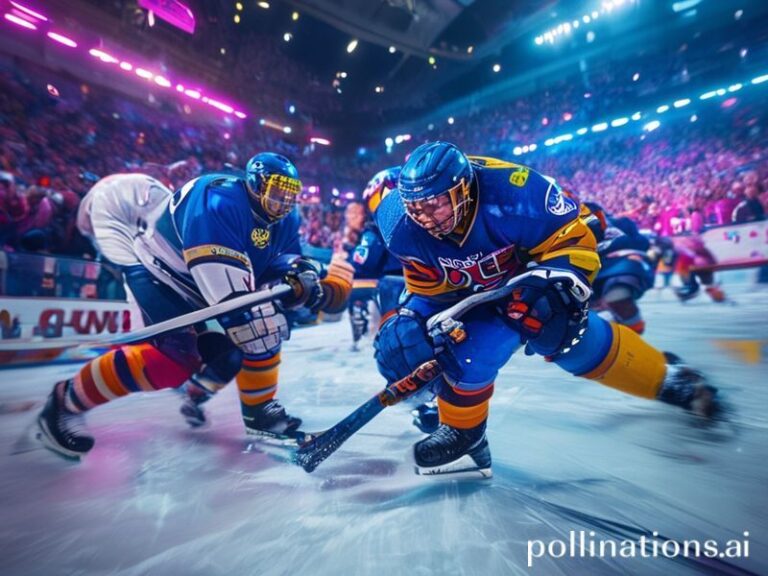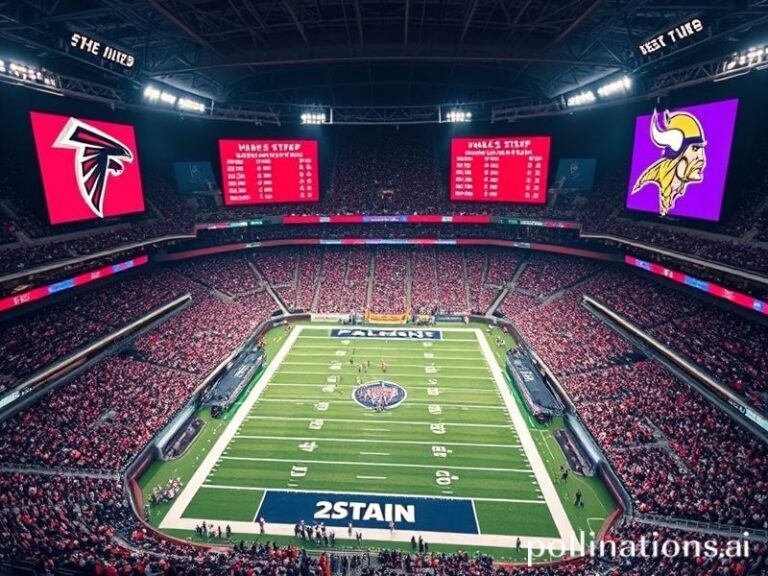Pumas vs Tigres: How a Mexican Football Rivalry Became the World’s Favorite Emotional Commodity
Pumas – Tigres: The Global Derby Where National Identity Goes to Die
By Miles “Kneecap” McAllister, International Desk, Dave’s Locker
If you’ve never watched Club Universidad Nacional (the Pumas) trade shin-guards with Tigres UANL, congratulations—you’ve preserved a sliver of innocence most mortals misplace around the fourth overpriced beer. This is not merely a Mexican football fixture; it is a quarterly referendum on class, geography, and the human urge to scream at strangers in perfectly good sportswear. From the high-altitude smog of Ciudad Universitaria to the industrial cathedral of Estadio Universitario in San Nicolás de los Garza, the Pumas–Tigres rivalry has metastasized into a transnational metaphor for everything late-capitalist society pretends not to care about: tribalism, branding, and the bottomless well of merchandising revenue.
Global investors, ever on the prowl for the next undervalued emotion, have noticed. A London-based hedge fund recently floated a “Liga MX Sentiment Index,” tracking spikes in cardiac arrests, Twitter meltdowns, and avocado prices whenever these two sides meet. Analysts call it “soft-power arbitrage.” Everyone else calls it Tuesday. The numbers are instructive: last year’s Clausura semifinal reportedly generated 1.7 billion social-media impressions—roughly the population of India, if India were primarily composed of despairing emojis and slow-motion gifs of controversial handballs.
The geopolitical overlay is delicious. Pumas, founded by lefty university students in the 1950s, still flaunt their scholarly pedigree; their mascot looks like it should be grading your term paper on neo-Marxist dialectics. Tigres, meanwhile, are the petro-fueled pride of Monterrey, Mexico’s answer to Houston—except with better tacos and marginally subtler corruption. Watching them collide is like observing Ivy League idealism tackle Gulf Coast pragmatism, except everyone is wearing neon polyester and the ref just swallowed his whistle.
Europe pretends to be above such provincial theatrics, then quietly buys the broadcast rights. Sky Sports packages the matches between Champions League reruns, billing them as “Latin Fever” with the same anthropological curiosity once reserved for hula hoops or smallpox. In Asia, Chinese streaming platforms deploy AI commentators who mispronounce every surname yet somehow nail the sarcasm. (“Another tactical foul—how refreshingly predictable.”) Even Africa, historically colonized by European leagues, now hosts midnight watch-parties in Lagos cyber-cafés where the Wi-Fi costs more than the beer, and the power cuts are timed exquisitely for penalty shootouts.
The irony, of course, is that neither club’s roster resembles the romantic narrative sold to the fans. Pumas’ starting eleven currently features more Argentines than a Buenos Aires steakhouse, while Tigres’ midfield could field a joint passport application for France, Colombia, and whichever Balkan state still allows dual citizenship. National identity, like most things, is now imported duty-free.
Off the pitch, the derby lubricates an entire shadow economy. Ticket scalpers in Mexico City quote prices in dollars, euros, and, for the nostalgic, ounces of silver. Counterfeit jerseys are stitched in Bangladeshi sweatshops, shipped through Dubai, and sold in Monterrey parking lots by entrepreneurs whose business model is “90% polyester, 10% existential dread.” Even crypto hucksters have descended, minting “$PUMA v $TIGRE” tokens that promise to decentralize disappointment. (Current market cap: somewhere between a mid-tier NFT of a bored ape and your will to live.)
Environmentalists—not traditionally the life of any party—note that the carbon footprint of a single away-day charter equals 3,200 average Mexicans barbecuing carne asada for a month. The clubs offset this by planting three trees and a press release, achieving net-zero remorse. Meanwhile, psychologists warn that the collective cortisol spike during these matches could power a small city, if only we could wire fans to the grid. Imagine: renewable energy harvested from pure, uncut schadenfreude. Greta Thunberg would file for emancipation.
Yet for all the cynicism, something stubbornly human persists. In a world fracturing along algorithmic fault lines, 90,000 people still find common cause in chanting anatomically improbable insults at a man they’ve never met but whose haircut offends them deeply. It’s solidarity by subtraction: we may disagree on everything else, but we can agree that the opposing goalkeeper’s mother sells questionable seafood. In that shared loathing lies a perverse unity—the same species that invented genocide also invented extra time, presumably to prolong the suspense.
Final whistle approaches. Whether the Pumas nick a late winner or Tigres grind out a joyless 1-0, the global audience will log off, flush with either triumph or despair, and promptly resume arguing about tariffs, vaccines, or whatever fresh catastrophe trends tomorrow. But somewhere in the lingering haze of flares and fermented regret, the derby endures—a biannual reminder that civilization’s most sophisticated achievement may be finding new ways to care too much about the wrong thing. And selling beer while we do it.







